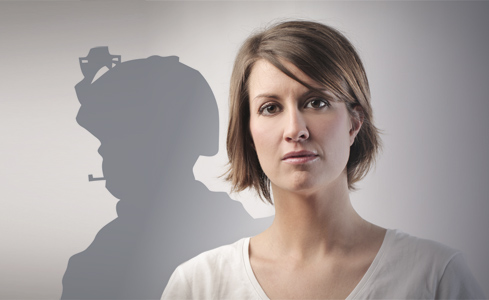 Legislation introduced in the Senate and House aim to end national epidemic
Legislation introduced in the Senate and House aim to end national epidemic
The Department of Veterans Affairs estimates that 20 veterans die of suicide every day. And while the VA, Congress and the administration have been making strides to combat the nationwide epidemic, the issue still looms large over the veteran community.
A 2018 report from the Government Accountability Office showed that VA officials failed to spend millions of dollars set aside for suicide prevention efforts during the previous fiscal year, specifically noting that “leadership turnover and reorganization since 2017” have led to a “decrease in suicide prevention media activities” over the past two years. And since the GAO report was made public in December, an alarming number of veterans have died of suicide on the grounds of VA facilities.
“There are currently a large number of high-level VA positions being filled by acting directors—including the roles of undersecretary for health and principal deputy undersecretary for health—that must be permanently filled in order to allow for comprehensive vision and strategy to be executed throughout the department,” said National Commander “Butch” Whitehead in the wake of the GAO report.
Both the Senate and House Veterans’ Affairs Committees have introduced bills focused on suicide prevention and mental health care, many strongly supported by DAV.
One bill—the Commander John Scott Hannon Veterans Mental Health Care Improvement Act (S. 785)—would improve transitioning service members’ and veterans’ eligibility for and access to federal programs such as transition assistance programs and health care, including mental health care, to reduce suicide rates and improve mental health.
The VA has also identified that 14 of the 20 veterans who died of suicide each day were not using VA health care services, presenting a number of challenges for understanding and addressing the needs of all veterans, particularly at-risk veterans. With the expansion of community care under the VA MISSION Act, DAV has been urging the VA to be cautious when identifying community care partners to ensure they are qualified to assist the veteran population.
“Network community care partners should also receive training and be provided with information about warning signs for suicide, effective screening and early interventions,” said National Legislative Director Joy Ilem. “Community providers are less likely to screen for mental health conditions and suicidal ideation common among veterans and to understand how to manage the care of veterans with these conditions effectively.”
DAV CAN (Commander’s Action Network) at DAVCAN.org, keeps members and supporters abreast of any proposed legislation intended to prevent veteran suicide and promote mental health services.
“As an organization, we believe suicide is preventable and that prevention is everyone’s business,” said Whitehead. “We also believe that membership and participation in a veterans service organization such as DAV can be a protective factor for vulnerable veterans who may be struggling with serious physical injuries, post-deployment mental health issues, homelessness or substance use.”
If you are having thoughts of suicide, there is help. Call the Veterans Crisis Line at 1-800-273-8255 and select option 1.





